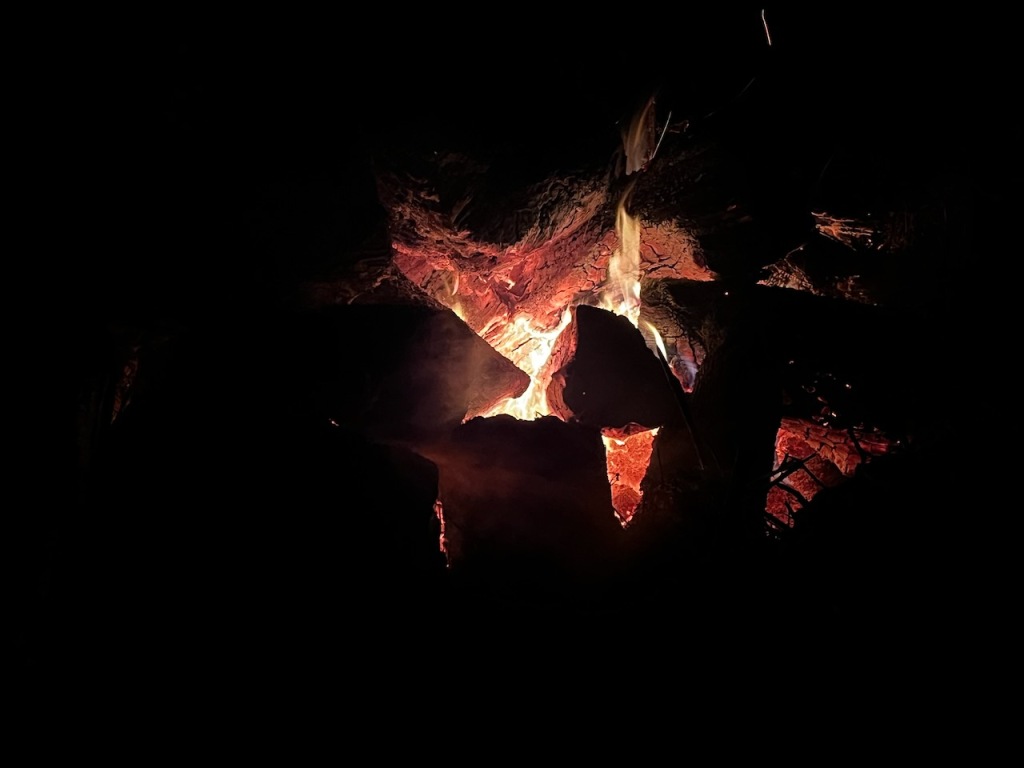New year. Sun, dazzling on frosted grass. The view from my windows is scenery in a toy theatre, flat bare trees Indian ink on cut-out mountains, receding in paler shades to the bright horizon. Blue remembered hills.
I’ve never been quite sure what Keats meant by ‘negative capability’, but perhaps he wasn’t sure either. It’s one of those accommodating ideas we tend to fill with our own preoccupations. He wrote about it in a letter to his brothers, Tom and George, in December 1817, explaining:
‘I mean Negative Capability, that is when man is capable of being in uncertainties, Mysteries, doubts, without any irritable reaching after fact & reason.’
John Keats. Selected Letters, Penguin Classics
Being in uncertainty is not hard—everyone is, at different times and in different ways. I’m generally happy there, even when I’m uncomfortable, because not knowing makes new things possible. Uncertainty is a precondition of co-creation. Reading Niel Thiese, I think he could be describing that process:
In complexity, however, while we can predict that emergence will occur, its precise nature can never be predicted, even if we begin with the same starting conditions. In complexity, the whole is unpredictably greater than the sum of its parts. Kind of like the world. Kind of like our lives.
Neil Theise, Notes on Complexity: A Scientific Theory of Connection, Consciousness and Being, Speigel and Grau, 2023
Being in uncertainty is easy. Not reaching for solutions is very hard. That’s what interests me in Keats’ idea—the capability that comes from allowing uncertainty to live in you without trying, or even wanting, to make it end. It’s akin to Pascal’s observation that ‘all of humanity’s problems stem from man’s inability to sit quietly in a room alone.’ From uncertainty, I know, emergence will occur. I also know that trying to hurry it only sets the process back. The task is to hold the uncertainty, as it is, for itself and for as long as it takes.
So far, for me, it’s been a year. Or two years. Or four. Or? It all depends when I choose to place the beginning, and that, in itself, is just an arbitrary piece of narrative-making. Stories have beginnings, middles and ends: it how we know they are stories. Life doesn’t come in such tidy packages.
But where co-creation is active, even if it uses tangential and non-linear methods, negative capability is passive. It is being, sitting with, not striving for resolution, change, even an end. Just being. That doesn’t prevent doing: living always makes its demands. The challenge, it seems to me, is to meet them without expectation, without desire. Only in the space that leaves can the right answers to uncertainty emerge—and by right, I mean the ones that are needed, and which cannot be known before they reveal themselves.
There are other metaphors for this—I’ve written before of lying fallow—but the purpose is the same. To have no purpose, but be with what is, however painful or difficult, however long it takes.

2 responses to “Living in negative capability”
This reminds me very much of Ursula K. le Guin’s comments on Taoism, and not reacting. How being still is actually a way of being and acting.
I love the idea of the fallow field (every 7 years at least!) and this has helped me to understand that times of *not* making are essential, not just to my art practice, but to my life.
LikeLiked by 1 person
Maybe it’s not a coincidence that I’ve been reading Ursula K Le Guin’s poems recently…
LikeLike